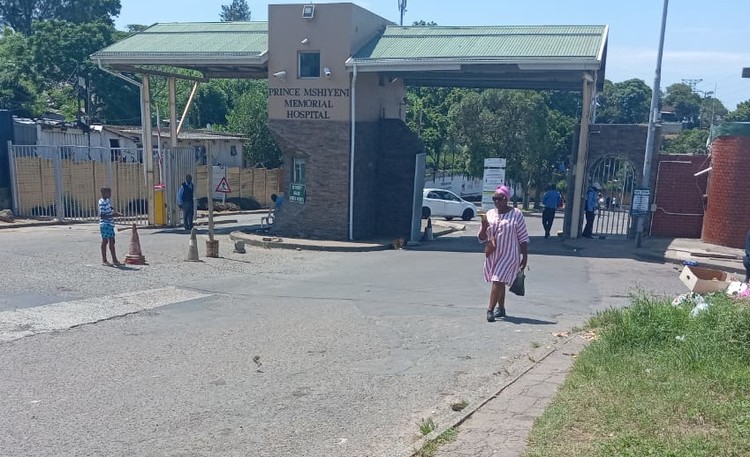Patients have to get water brought to them at this Durban hospital
Municipality is rationing water to large parts of the city
The water supply to Prince Mshiyeni Memorial hospital in Umlazi, Durban, has been intermittent. Photo: Tsoanelo Sefoloko
Families of patients are bringing water for their loved ones to Prince Mshiyeni Memorial hospital in Umlazi, Durban. This reporter witnessed this on Saturday when visiting the hospital.
Staff we spoke to say the hospital has been without consistent water supply for a week. Most of the toilets have been closed to the public. Some patients have to use the non-flushing chemical toilets installed next to the hospital entrance.
When there is some water, patients have to have cold baths because there is insufficient water in the geysers.
The washing machines in the linen department were not functioning. They appeared to have been broken for some time.
Staff we spoke to said the water situation was even worse in the intensive care unit.
The hospital has been hit by water rationing in Durban.
KwaZulu-Natal health department spokesperson Ntokozo Maphisa said the department is aware of the “ongoing water supply challenge affecting Prince Mshiyeni Memorial Hospital, along with several sections of the Umlazi township in south Durban” since 2 February.
“While the current conditions are far from ideal, the department is in constant communication with the eThekwini Municipality and other stakeholders to expedite solutions and restore normalcy as soon as possible. We are also working closely with our neighbouring hospitals to share the load to reduce the number of patients coming to the hospital,” said Maphisa.
EThekwini municipality spokesperson Gugu Sisilana said a team of highly skilled personnel have been deployed to undertake an assessment on parts of the southern aqueduct, following a drastic reduction of inflow to some areas in the south and central regions of the city.
“The municipality will also be rationing the available water to ensure equal supply to all affected areas. As a short-term intervention, water tankers continue to supply water to affected residents until the system fully recovers. This project will significantly improve flow of water to areas supplied through this bulk pipeline – Queensburg and Umlazi,” said Sisilana.
Support independent journalism
Donate using Payfast

Don't miss out on the latest news
We respect your privacy, and promise we won't spam you.
Next: This SASSA office opens earlier to deal with “high influx” of clients
Previous: Explainer: HIV, HPV and cervical cancer
© 2025 GroundUp. This article is licensed under a Creative Commons Attribution-NoDerivatives 4.0 International License.
You may republish this article, so long as you credit the authors and GroundUp, and do not change the text. Please include a link back to the original article.
We put an invisible pixel in the article so that we can count traffic to republishers. All analytics tools are solely on our servers. We do not give our logs to any third party. Logs are deleted after two weeks. We do not use any IP address identifying information except to count regional traffic. We are solely interested in counting hits, not tracking users. If you republish, please do not delete the invisible pixel.

